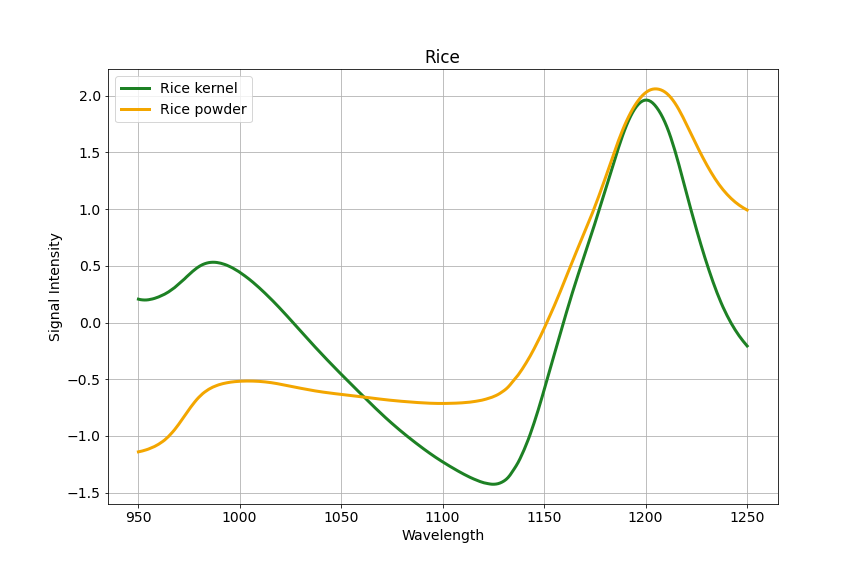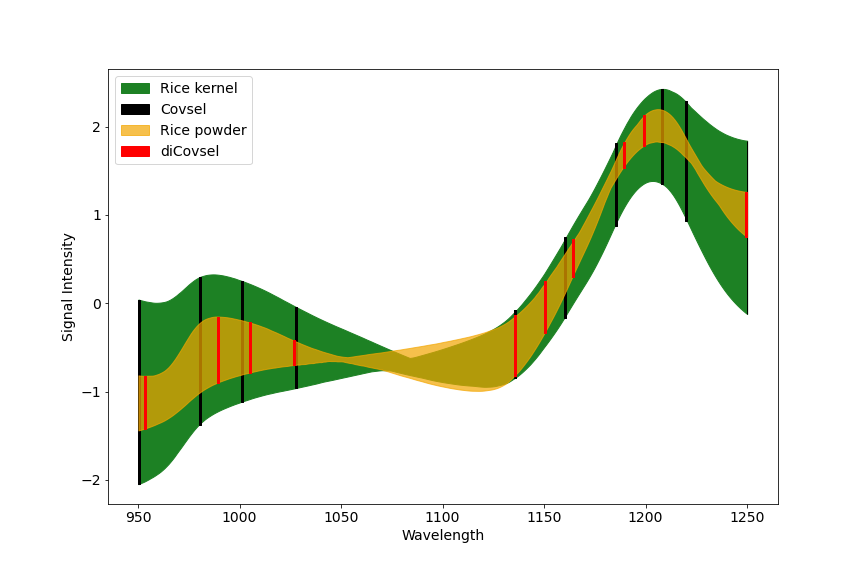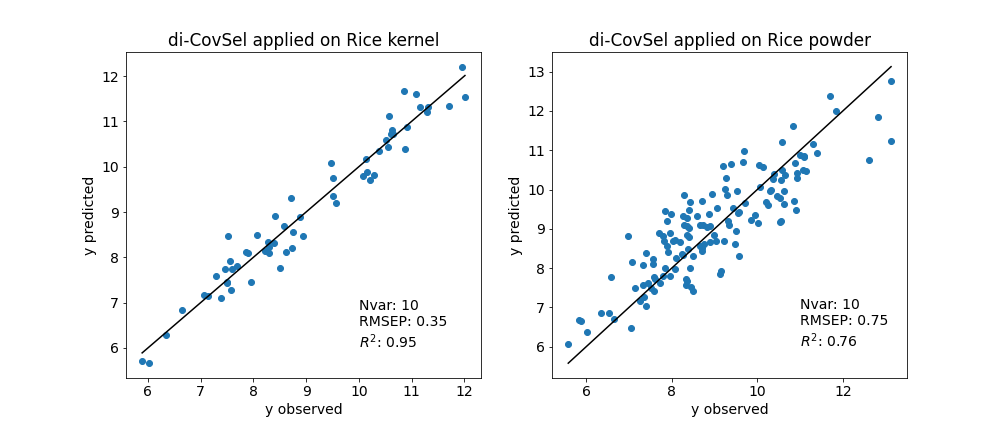Implementation of di-CovSel for domain invariant selection of variables.
Selection of variables
from dicovsel_functions import dicovsel
di_nvars = 10
l_chosen = 1e6
dicovsel_output = dicovsel(X=Xs,Y=Ys,Xs=Xs, Xt=Xt,nvar=di_nvars_max, l = l_chosen,scaleY = False, weights = None)
selected_dicovsel = dicovsel_output[0]
# The tuning parameters can be chosen with cross-validationTrain OLS model with selected variables
from sklearn.linear_model import LinearRegression
mlr_dicovsel = LinearRegression()
mlr_dicovsel.fit(Xs[:, selected_dicovsel[0:di_nvars]],Ys)
Ys_test_pred = mlr_dicovsel.predict(Xs_test[:, selected_dicovsel[0:di_nvars]])
Yt_test_pred = mlr_dicovsel.predict(Xt_test[:, selected_dicovsel[0:di_nvars]])di-CovSel was developed in collaboration with Puneet Mishra, Jean-Michel Roger and Wouter Saeys.
- V.F. Diaz, P. Mishra, J.-M. Roger, W. Saeys, Domain invariant covariate selection (Di-CovSel) for selecting generalized features across domains, Chemometrics and Intelligent Laboratory Systems (2022), doi: https://doi.org/10.1016/j.chemolab.2022.104499.
This work was inspired and based on the original development of Domain Invariant Partial Least Squares
- Ramin Nikzad-Langerodi, Werner Zellinger, Susanne Saminger-Platz, Bernhard A. Moser, Domain adaptation for regression under Beer–Lambert’s law, Knowledge-Based Systems, Volume 210, 2020, https://doi.org/10.1016/j.knosys.2020.106447.
- class_sample_selection.py: Algorithms for unsupervised sample selection. See https://doi.org/10.1016/j.chemolab.2021.104352
- dicovsel_functions.py: di-CovSel algorithm and original CovSel algorithm.
- dipls_function.py: Original di-PLS algorithm for comparison. See https://github.com/B-Analytics/di-PLS
- rice_dicovsel.ipynb: Reproducibility of results for Rice data in di-CovSel publication https://doi.org/10.1016/j.chemolab.2022.104499.
- rice_kernel_to_powder.mat: Data used for Rice case study in the di-CovSel publication.


